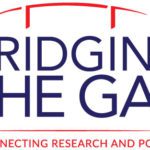Policymaking is a complex system. It may seem linear and straightforward, but it hardly ever is. The process, even when it follows the tenets of the Scowcroft model, is a vibrant, cacophonous ecosystem of input, interactions, ideation, and iteration. As such, academic research findings and policy-engaged scholarship exist in this dynamic system, but they are but one of many contributions to policymaking—let alone outcomes of the policies. Inside the system, it is difficult to ascertain such dependencies as X caused Y or Y caused Z. The concepts of multifinality (the same path can lead to many different outcomes) and equifinality (one outcome can result from many different paths) are much more helpful in describing this system. And as such, academics should not overestimate the individual influence they have over policy outcomes. They are a part of the process, but their input is less like that of an architect and more like that of a contractor contributing a small piece to a building project.
Academic insights may be ignored, embraced, or instrumentalized.
While perhaps obvious, academic research can go a long way to shape the debate or can have no effect at all. It is only one of many contributions, and its insights may be ignored, embraced, or instrumentalized. The problem is that scholars don’t know – and may never know – how their work has been received by policymakers and whether it steered a policy decision in a good or bad direction. This opacity leaves academics shouldering more of the moral weight of policy decisions and outcomes than necessary.
For anyone who is outside of the policymaking process, there is information asymmetry, unknown players, and unknown decision points to navigate. For example, an academic briefing their findings to a policymaker might never know if that research is being used to interrogate assumptions or to reify already held positions. When we worked at the National Security Council under President Obama, for instance, we routinely asked academics to share their analysis on troubled spots, from Somalia to Nigeria, to check whether it challenged or supported forthcoming policy decision. In some cases, it was reassuring that our theory of the case was sound. In other examples, their analysis was tangential or irrelevant to the policy debate, and it was promptly forgotten. Of course, at times, the research contradicted our planned approach and prompted a rethink.
The researcher’s dilemma is that they may be asked to comment on a specific aspect of a challenge, which could mean they only see one narrow part of a more comprehensive policy process. Similarly, an academic might engage heavily with one agency or department, but it remains unknown to them if that same research is seen differently or at all by other agencies.
Finally, the scholar is likely to be blind to where they are in the process. Depending on the decision, timing, and topic, an academic’s input could have little impact because agencies representatives have hardened positions and marching orders from their bosses. Unbeknownst to the scholar, they may be part of a check boxing exercise (i.e., consulted academics) to see how a decision might “sound” to specific interest groups and to deflect potential public criticisms. Or scholarly research could act as “just in time” information to deliver insights, address information gaps, and hasten a final decision. Because of all these pieces within the system, academics do not necessarily know all the potential ways their research will impact a policy decision.
Some policymakers will… share just enough to continue the discussion.
With all these factors, actors, and dynamics, some academic researchers might be discouraged and want to disengage entirely from policy-relevant scholarship. That would be a mistake in our view. Just because you can’t see “inside the black box,” it doesn’t mean you should opt out. First, you should educate yourself on the process and be unafraid to ask probing questions about the policy state of play: where are we in the process? Some policymakers will be very transparent, and others will share just enough to continue the discussion.
Second, you should remember that policymakers ultimately bear the burdens and successes of their decisions. And with that knowledge, perhaps academics can better calibrate their own moral and ethical redlines for engagement. Because, despite all the unknowns, we can attest that scholars can enrich policies when they engage. They help unlock new insights, highlight critical missing pieces or new trends, and showcase authentic, local findings that perhaps never may have made to top decisionmakers. Academics can be an integral piece of the puzzle, and their involvement has the potential to increase the likelihood of better policies.
This is an installment in an occasional series discussing the ethical dilemmas that arise when academics engage with policymakers and the broader public.. The series is part of the Rigor, Relevance, and Responsibility project of the Sié Chéou-Kang Center for International Security & Diplomacy, which seeks to make ethical considerations an integral part of policy-relevant research and engagement. The program develops knowledge around, and informs the practice of, responsible engagement so that future generations of academics can engage in the policy world with confidence and clarity. This program is supported by the Carnegie Corporation of New York.




0 Comments